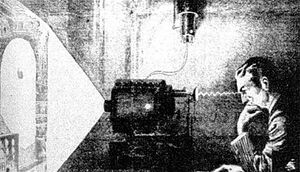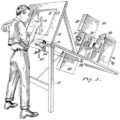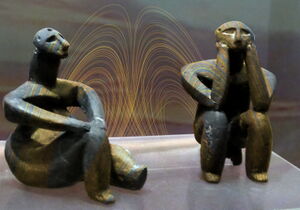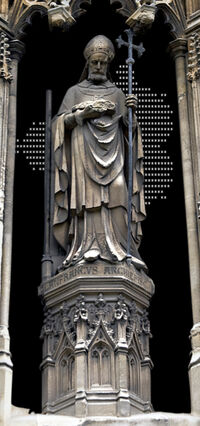Scrying engine: Difference between revisions
No edit summary |
No edit summary |
||
| Line 1: | Line 1: | ||
[[File:Thought_camera.jpg|thumb|Artist's depiction of a "Thought camera" (attributed to [[Nikolai Tesla]], but not necessarily informed by Tesla's actual inventions). This device is closely related to scrying engines.]]A '''scrying engine''' is any [[engine]] which causes or facilitates [[scrying]]. | [[File:Thought_camera.jpg|thumb|Artist's depiction of a "Thought camera" (attributed to [[Nikolai Tesla]], but not necessarily informed by Tesla's actual inventions). This device is closely related to scrying engines.]]A '''scrying engine''' is any [[engine]] which causes or facilitates [[scrying]]. | ||
== In the News == | |||
<gallery mode="traditional"> | |||
Rotoscope.png|Rotoscope upgraded to scrying engine. | |||
</gallery> | |||
== The Patrick Device == | == The Patrick Device == | ||
Revision as of 08:48, 12 June 2016

A scrying engine is any engine which causes or facilitates scrying.
In the News
The Patrick Device
The Patrick Device is the first scrying engine invented, setting the standard for subsequent engines.
Hamangia scrying engines
The Hamangia culture invented a variety of primitive yet surprisingly powerful scrying engine techniques.
John Brunner has speculated that the figures deliberately arranged to have themselves placed in the museum, for their own unknown reasons.
Lee and Turner color projector

John Brunner owns a Lee and Turner color projector which has been extensively custom modified for use as a scrying engine.
The device uses Edward Turner’s original method for visualizing the Computational Human Phantom as successive frames on black and white film through red, green and blue filters and to project these sets of three frames superimposed through similar filters. Images are translated through red, green and blue filters into the scrying engine kernel at the rate of 16 pictures per second.
Brunner once called it "the best bloody tool I ever bought."
Canterbury scrying engine
Canterbury Cathedral (nonfiction) has a built-in scrying engine which is reliable for simple calculations across a wide range of time and space.
The Canterbury scrying engine computes a simple display of the Mandelbrot set (nonfiction) using the statue of Lanfranc (nonfiction).
The Rosenwald sheets
The Rosenwald sheets function as rudimentary scrying engine, apparently providing a matrix (nonfiction) for scrying routines.
Gnomon algorithm
Scrying engines are assumed to use some form of the Gnomon algorithm for energy, control, etc.
Universal Turing machines

Scrying engines are closely related to Universal Turing machines.


